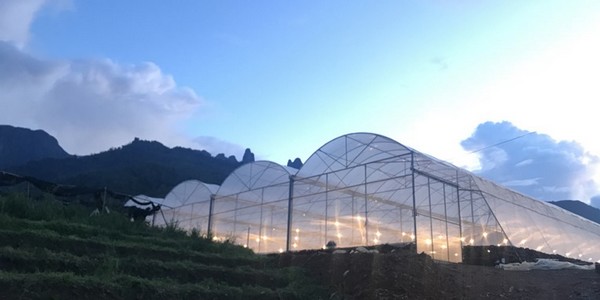In a promising example of how rural innovation can drive local economies, Bumdes Karya Maju of Jambangan Village, Kawedanan District, Magetan Regency, Indonesia, recently celebrated a successful second harvest of hydroponic melons. The project, based in the Jatera Agung Greenhouse, showcases how controlled environment agriculture can produce high-value crops while enhancing village-owned enterprises (BUMDes) as engines of economic growth.
The greenhouse—measuring 9.5 x 40 meters—was constructed with financial support from the East Java Provincial Government in 2024. It employs hydroponic systems to cultivate D165 super sweet melon, a premium variety known for its excellent taste and market value. Each plant yields an average of 1.2 kg of fruit, with quality meeting high market standards.
According to Cahyo Susilo, Director of Bumdes Karya Maju, this hydroponic project represents a strategic move toward positioning Jambangan as a thematic village focused on melon production. “We aim to make Jambangan a model for melon farming and attract broader attention to our village,” he said during the March 23, 2025 harvest event.
Hydroponic melon production offers several key benefits:
- Efficient land use: With greenhouse cultivation, crop density and yields can be optimized even on limited land.
- Water savings: Hydroponic systems use up to 90% less water compared to conventional soil-based melon farming, according to data from the International Journal of Agricultural Technology (2024).
- Faster crop cycles and better pest control: The controlled environment reduces pest pressure and allows for more predictable harvests.
Indonesia’s growing interest in hydroponics mirrors global trends. The global hydroponic fruit and vegetable market, valued at USD 10.2 billion in 2023, is expected to reach USD 22 billion by 2030, growing at a CAGR of 11.3%, driven by urbanization, climate change concerns, and demand for high-quality produce.
Locally, the impact is also being felt by consumers. Chila, one of the regular buyers of Jatera Agung melons, praised the flavor and freshness of the product. “I missed out on the first harvest because everything was sold out quickly. My family said the melons were sweet and very fresh,” she shared.
The initiative also holds potential for agritourism and farmer education. With the branding of Jambangan as a “melon-themed village,” there are opportunities to create demo plots, host harvest festivals, and offer training sessions for other farmers interested in adopting hydroponic methods.
The hydroponic melon project in Jambangan Village is a shining example of how innovation, government support, and community-driven initiatives can transform rural areas into centers of agricultural excellence. As the demand for premium, sustainably-grown produce increases, village-level enterprises like Bumdes Karya Maju are showing that even small plots of land can deliver big impact.










